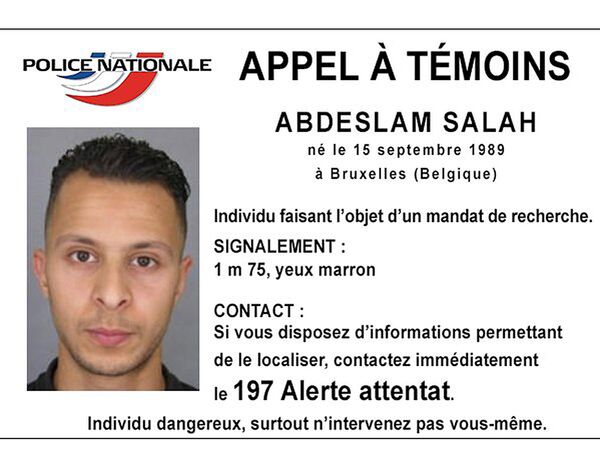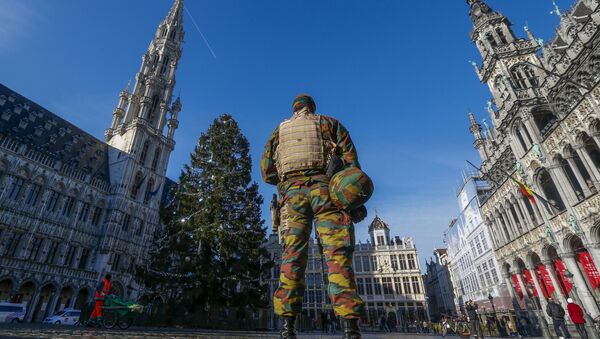However, many people have taken to social media to slam the European Council for bending to the terrorists, appearing weak in the face of the threat, while Parisians showed solidarity in the days after the attacks on November 13 by coming out onto the streets.
#Brussels on High Alert — Army Patrols Empty Streets https://t.co/OxTGwI0CE0 pic.twitter.com/BvC7LbX8G5
— estNATO (@estNATO) November 22, 2015
Cinemas, concert halls, shopping malls, the Metro transport system, schools and museums remained closed Monday following security raid that led to 16 arrests, but which failed to net the missing Paris attacker Salah Abdeslam.
Brussels police seek social media silence on #terror raids; public responds with cats. https://t.co/PMuyBYJU60 pic.twitter.com/ltfgK9wnLU
— Jim Roberts (@nycjim) November 23, 2015
Although Belgian interior Minister Jan Jambon told RTL radio, that: "Apart from the closed metro and schools, life goes on in Brussels, the public sector is open for business today, many companies are open," EU officials canceled a whole raft of meetings due to be held in the capital Monday.
However, the three EU institutions appeared in disarray over how to react to the terror threat.
European Commissioner Kristalina Georgieva, tweeted:
Meetings taking place on @EU_Commission premises can go ahead but please check and expect heightened security checks. Stay safe. 2/3
— Kristalina Georgieva (@KGeorgievaEU) November 22, 2015
"The safety and wellbeing of our staff remain our priority, so flexible working arrangements/telework are encouraged wherever possible," Georgieva said.
Meanwhile, European Parliament spokesperson Jaume Duch said staff would be able to work from home in Brussels.
However, officials at the European Council said it "has decided to cancel the majority of non-essential meetings scheduled to take place [Monday] in the Council building." The officials canceled "all but essential" meetings of the EU institutions and urged staff to work from home, in what many see as a capitulation to terrorism.
Georgi Gotev, senior editor of EurActiv.com tweeted:
Can you imagine White House or Kremlin cancelling "non-essential meetings" because of terror threat? No. But that's what EU does
— Georgi Gotev (@GeorgiGotev) November 22, 2015
The lockdown in Brussels is in marked contrast to Paris, where the French state broadcaster France 24 reported:
"A week after their city was shaken to the core by a series of deadly terror attacks, Parisians took to streets and cafes in the thousands Friday to honour the victims and express defiance at those who would try to challenge the French way of life."
Hotbed of Terrorism
Belgium has become the center of international attention following the Paris attacks, after the links to Brussels and the poor district of Molenbeek in particular, emerged. Fugitive suspected militant Salah Abdeslam, slipped back home to Brussels from Paris shortly after the attacks, in which his elder brother Brahim blew himself up at a cafe.

A second man from Molenbeek, Bilal Hadfi, was also among the Paris suicide bombers. Three people detained in Brussels are now facing terrorism charges. Federal prosecutors said Saturday that weapons had been found at the home of a person charged on Friday.
Belgian security services had been tracking Paris bomber Hadfi for months #ParisAttacks https://t.co/fuPMuUN9BC pic.twitter.com/iXnRRiOGth
— POLITICO Europe (@POLITICOEurope) November 19, 2015
Belgian Interior Minister Jan Jambon told reporters he wanted a register of everyone living in Molenbeek because it was not clear at present who was at each address, a process local officials had already started.


